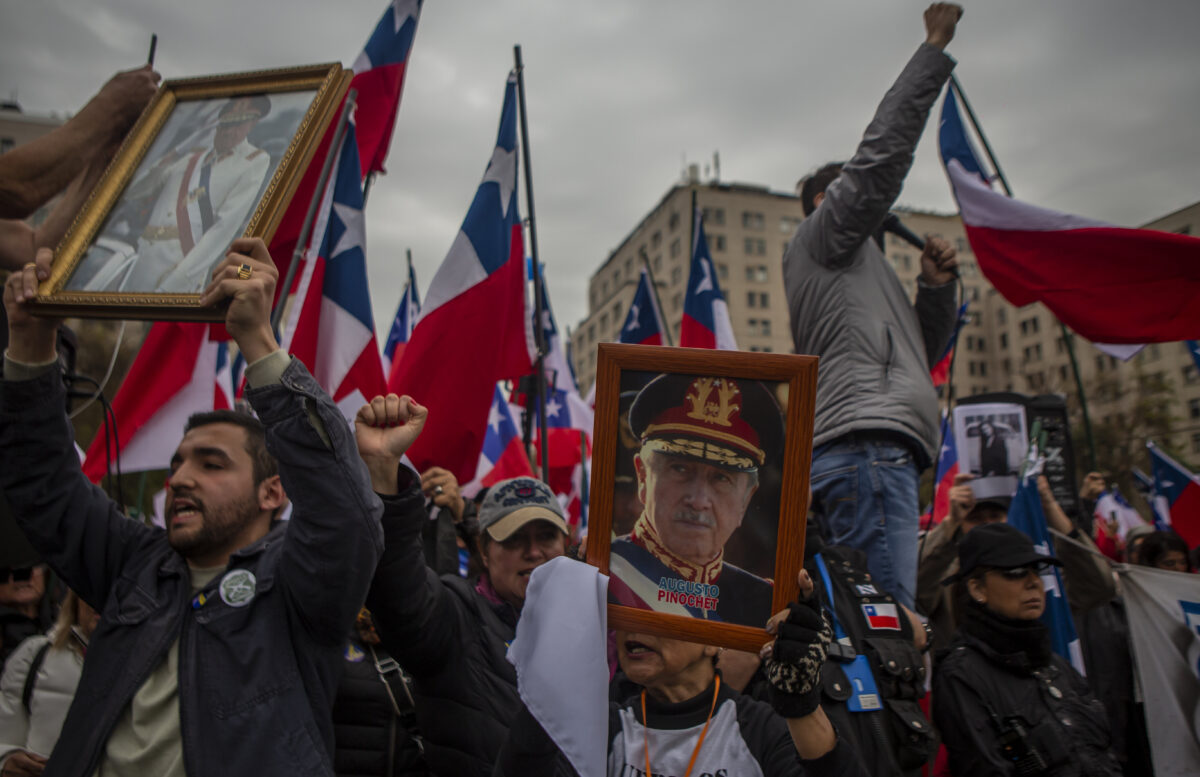NEWS | 15 Apr 2025
The rise of far-right memory politics
How the past is instrumentalised across the globe

A new collection of research papers and a policy brief highlight the global misuse of history by far-right actors and offer strategies to counter their influence.
The rise of the far right is not just a political challenge – it also constitutes a battle over how to remember the past. Across the globe, far-right actors are engaged in memory politics to legitimise their ideologies, undermine democratic institutions and fuel division. A newly published policy brief by the Global Learning Hub for Transitional Justice and Reconciliation and a collection of four case studies examine how the far right instrumentalises the past and propose strategies to counteract this trend.
Focusing on case studies from Chile, South Africa, South Korea and Lithuania, the research highlights a common pattern: as democratic transitions unfolded in the late 20th century, efforts were made to address historical injustices. However, in the past decade, far-right actors have increasingly sought to reverse these gains, promoting revisionist interpretations of history that fuel hate speech, xenophobia, racism and political polarisation. The far right thus poses a profound challenge to those committed to human rights, peacebuilding and democracy.
How the far right misuses the past
The memory politics of the far right play out in different spaces. Memorial sites are frequent targets of protests, vandalism or campaigns for removal. Educational institutions also face pressure, as the far right pushes for changes in history textbooks and historical scholarship that downplay historical crimes and frame authoritarian leaders as national saviours. The digital sphere has become an especially powerful tool for spreading revisionist history, often combined with hate speech and misinformation.
Next to a policy brief, the collection features four case studies:
- Endangered cultural memory: The impact of far-right discourses and practices on human rights related to the dictatorship in Chile – Carolina Aguilera and Manuela Badilla
- Between nostalgia and apocalypse: White nationalist remembrance of the past and fear of the future in post-apartheid South Africa – Malose Langa and Peace Kiguwa
- Rewriting history, undermining democracy: The role of the New Right in South Korean memory politics – Hannes B. Mosler
- Glorification, whitewashing, erasure: The populist challenge to dealing with the past in Lithuania – Violeta Davoliūtė
When promoting their preferred version of the past, the far right relies on tropes of security, threat and loss. They portray the past as a time when people still felt safe, in contrast to alleged present-day insecurities and threats. At the same time, the far right reinterprets past injustices – such as human rights violations by former regimes – as necessary measures to maintain order. Additionally, they capitalise on feelings of loss, particularly among groups who see democratic transitions as a threat to their power or status.
A key strategy in the far-right misuse of the past is the reframing of identities. Rather than recognising victims of violence, they often portray themselves as the true victims. This reversal relativises and delegitimises the suffering of victims, while amplifying the far right’s own grievances. Meanwhile, figures condemned for their roles in authoritarian regimes or mass violence are rehabilitated as heroes, with their darker histories conveniently omitted.
The far right’s approach to history is also shaped by a specific view of time, invoking both a nostalgic past and an apocalyptic future. The past is presented as a golden age of stability and prosperity, erasing all its complexities and injustices. At the same time, the future is depicted in dire terms: not following their lead, the far right argues, will lead to catastrophic consequences.
Countering far-right memory politics
The policy brief and case studies suggest several measures to counter the far right’s instrumentalisation of the past. Protecting and funding memorial sites is crucial to ensuring that spaces of remembrance are preserved. Independent institutions, such as nonpartisan oversight bodies, must be established to promote an inclusive and critical engagement with history and to monitor abuses of the past for political gains. International collaboration among activists and organisations in the field of dealing with the past is also essential, as far-right memory politics itself is a global phenomenon.
Strengthening historical education and civic engagement can help counter revisionist narratives and promote critical thinking. Local history should be promoted as it is often highly relevant to communities and well suited to convey historical complexities and nuances. Addressing feelings of loss is also key – by fostering open dialogue about social and political changes, societies can prevent the far right from monopolising these sentiments for their own ends.
The far right’s misuse of the past has dangerous consequences for the present and future. As democratic backsliding accelerates worldwide, countering these distortions is essential for safeguarding democratic, inclusive and peaceful societies.